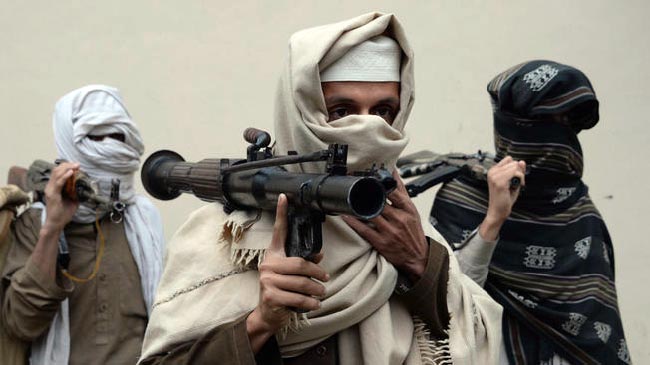With the appointment of Mullah Akhtar Mansour as the Taliban’s leader and emergence of the self-proclaimed Islamic State of Iraq and the Levant (ISIL), an escalation surfaced in militancy and terror across the country. Afghan nation has passed a bloody year and a large number of civilians and police lost their lives or sustained injuries. As a result, US officials said that at least 7,000 Afghan security force members have been killed between January 2015 and the beginning of December. Similarly, total civilian deaths and injuries in the first quarter of 2015 followed the record high levels of 2014. Between January 01 and March 31, UNAMA documented 1,810 civilian casualties. The Taliban carried out several high-profile attacks in recent months. In December, the militant group launched an attack on the strategic district of Sangin. It later seized and blew up the police headquarters and governor’s compound. And in September, the Taliban briefly overran the northern Afghan city of Kunduz, in one of their biggest victories since 2001.
The insurgency has not decreased despite the hot discussion about resuming reconciliation process and locals’ rights to life and liberty are widely trampled upon. Moreover, the freedom of thought and expression comes under threat by the Taliban insurgents and they seek to influence the media. Reportedly, a car-bomb attacked a bus carrying journalists working for an Afghan news channel on Wednesday and left 7 dead and 25 injured behind. The Taliban claimed responsibility for the attack. It is said that Tolo News vehicle was specifically targeted and the victims were its staff.
In October, the Taliban designated Tolo News and 1 TV, another Afghan news outlet, “military objectives” and accused them of spreading propaganda. The Afghan outlets had reported allegations that Taliban fighters had committed rapes in the battle for Kunduz, among other abuses. Abuse was also reported by Western media, citing the Afghan government and a report by an Afghan-rights group.
The Taliban’s suicide attacks continue in spite of the fact that Afghan, Pakistani, Chinese and US officials have met for talks, last week, aimed at establishing a roadmap for peace between Afghanistan and the Taliban. However, the Taliban, who are divided by factional infighting, did not attend the talks.
A statement issued at the end of the meeting said that “all four countries underscored the importance of bringing an end to the conflict in Afghanistan”.
It further added that “The participants emphasized the immediate need for direct talks between the government of Afghanistan and representatives of Taliban groups in a peace process that aims to preserve Afghanistan’s unity, sovereignty and territorial integrity.”
On the other hand, the US State Department spokesman John Kirby has said that there are some challenges in the Afghan-led reconciliation process with the Taliban. He did not point out the challenge but said that Afghan leaders are aware of them. “But we applaud the continued efforts that they have put in to get it going. And as we’ve said before, we stand willing to support that process as appropriate, but it must be Afghan-led. That’s the only way this is going to be successful.”
It is believed that the Taliban’s splinter group and ISIL and many other terrorist networks, including the Tehreek-i-Taliban Pakistan (TTP), seek to act as “distracters” through increasing terrorist attacks so as to create tension between Kabul and Islamabad. For instance, Pakistan’s Chief of the Army Staff Gen Raheel Sharif claimed that the terrorist attack on Bacha Khan University – which left at least 21 people, including students, a faculty member and security guards dead – was orchestrated from Afghanistan by members of TTP group. According to a Pakistani medium, strike was claimed by TTP Geedar group’s commander Aurangzaib alias Khalifa Umar Ameer Naray, who was also involved in attacks on Peshawar’s Army Public School in December 2014 and Air Force’s Badabher camp in September last year.
The fact is that the peace talk has always encountered a challenge in one way or another. In other words, militancy and tension increase as soon as the reconciliation process is planned to be initiated. Most probably, those militant groups, who are disregarded in the talk, will intensify their attacks to narrow the opportunity for diplomatic way.
Currently, the ISIL insurgents will also pose threat to reconciliation process via carrying out attack under the name of Taliban since a number of the Taliban members pledged allegiance to this group – as it stoked sectarian tension in recent months by kidnapping and beheading members of ethnic minority group without claiming the responsibility.
Despite all the challenges, it is said that the official initiative involving Afghanistan, Pakistan, China and the United States is due to hold its third meeting in Islamabad on February 6. The meetings do not include Taliban representatives, but aim to lay the groundwork for an eventual dialogue between militants and the Afghan government.
Afghanistan should urge the Taliban militants to cease militancy and give up killing the innocent civilians if they show any tendency towards peace. In another item, the Taliban’s terrorist attacks should not be ignored as a peace offering by the government. It is simply said, “If you want peace, prepare for war”. Besides seeking peace, the government should intensify the soldiers and show military backlash against the terrorist attacks which target the nation, be it from the Taliban, ISIL or any other terrorist network.
Home » Opinion » Afghanistan – A Peacemaker Government with Warmonger Enemies
Afghanistan – A Peacemaker Government with Warmonger Enemies
| Hujjatullah Zia

